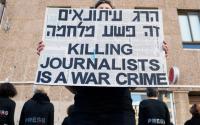Turkish Foreign Minister Abdullah Gul set tough terms yesterday for Turkey to provide additional troops in Iraq, saying the government needs assurances of economic and business contracts and a "common understanding" with the Bush administration on Iraq's future.
Gul, speaking before meetings this week with top U.S. officials that are intended to ease tensions between Washington and Ankara, also said that a broader role for the United Nations in the reconstruction of Iraq would ease passage of a troop request in the Turkish parliament. But he said a broader U.N. role is not a requirement.
He warned that lawmakers in parliament would balk if the troop request was not tied to a specific and deep role for Turkey in Iraq's reconstruction. "If it is seen that we just send a police force there, then the vote will be different," Gul said, adding that Turkey must be "part of the big picture."
Gul said Turkey's strategic location as a neighbor of Iraq, as well as its history as ruler over Iraq during the time of the Ottoman Empire, made it necessary for the United States to rely on its expertise.
"Since we are a part of that world, we know better than you," Gul told reporters and editors at The Washington Post. "We ruled this area for a hundred years. We can give good advice and we can really contribute to settle down the issues over there for the stabilization of Iraq."
Gul's visit comes during a period of extraordinary tension between the two NATO allies and also when the Bush administration is seeking to enlist other nations in providing troops to help relieve the burden on U.S. forces in Iraq. The Istanbul-based newspaper Milliyet reported that the United States had requested that Turkey supply as many as 12,000 troops, but Gul said specific numbers had not yet been discussed.
Earlier this month, U.S. forces detained 11 Turkish officers and soldiers based in northern Iraq after receiving a tip they were planning to assassinate a local Kurdish governor. Turkey denied the charge and the men were released, but Turkish Army Chief of Staff Gen. Hilmi Ozkok said the incident had "created the biggest crisis of confidence" ever between the United States and Turkey.
Today and Friday, Gul will meet with Secretary of State Colin L. Powell, Defense Secretary Donald H. Rumsfeld, national security adviser Condoleeza Rice and Vice President Cheney.
Gul said he had concluded from his conversations with U.S. officials that the arrests were the result of a decision by a local U.S. commander, not senior officials. "I think it's over now," he said.
Listing areas in which Turkey would like business contracts, Gul included electricity, drinking water, gasoline products, telecommunications and health care. Since "Iraq is our neighbor, we must deal with that" in discussions with the United States, he said. "We cannot ignore that."
U.S.-Turkish relations soured after Turkey's parliament in March refused to permit the U.S. military to use Turkey as a staging ground to invade northern Iraq. However, the Bush administration did promise $1 billion in aid to bolster Turkey's economy.
Turkish troops have been operating in northern Iraq since the end of the 1991 Persian Gulf War to suppress Kurdish guerrillas waging a separatist struggle in southeastern Turkey. The Turkish troops do not report to the United States, the occupying military force in Iraq.
http://www.washingtonpost.com/wp-dyn/articles/A37229-2003Jul23.html






